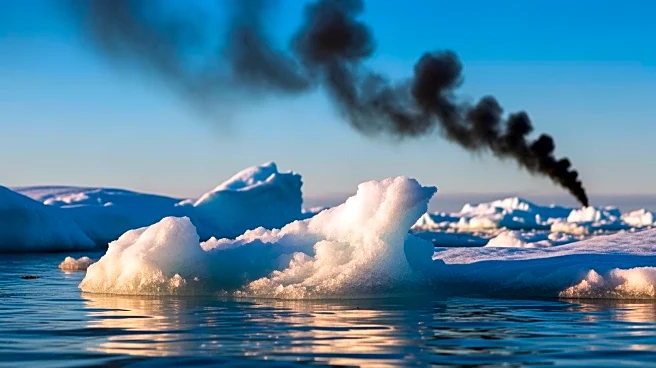What's Happening?
The Arctic region is experiencing warming at a rate four times faster than the rest of the planet, prompting urgent calls for action to reduce black carbon emissions from shipping. The International Maritime
Organization (IMO) has set a deadline of December 5th for Arctic states to submit proposals for cleaner polar fuels. This initiative aims to mitigate the impact of black carbon, a climate super-pollutant that accelerates ice melting and contributes to global warming. The Nordic Council of Ministers has recommended that Nordic governments work towards the recognition of polar fuels by the IMO and the MARPOL Convention. The upcoming Pollution Prevention and Response subcommittee meeting in February presents an opportunity for Arctic states to lead in regulating polar fuels.
Why It's Important?
The regulation of polar fuels is crucial for reducing black carbon emissions, which have more than doubled in the last decade due to oil-based fuel use in shipping. These emissions exacerbate climate change by increasing the rate of ice melting in the Arctic, thus reducing the planet's reflectivity and accelerating warming. By adopting cleaner fuels, Arctic states can significantly reduce environmental damage and demonstrate leadership in climate action. This move could set a precedent for global shipping standards, encouraging other regions to adopt similar measures to combat climate change.
What's Next?
Arctic states must meet the December 5th deadline to submit proposals for polar fuel regulations. The February meeting of the IMO's Pollution Prevention and Response subcommittee will be a critical juncture for discussing and potentially adopting these regulations. Success in this initiative could lead to broader international cooperation on reducing shipping emissions and further climate action. Stakeholders, including environmental groups and shipping companies, are likely to closely monitor these developments and advocate for stringent regulations.










